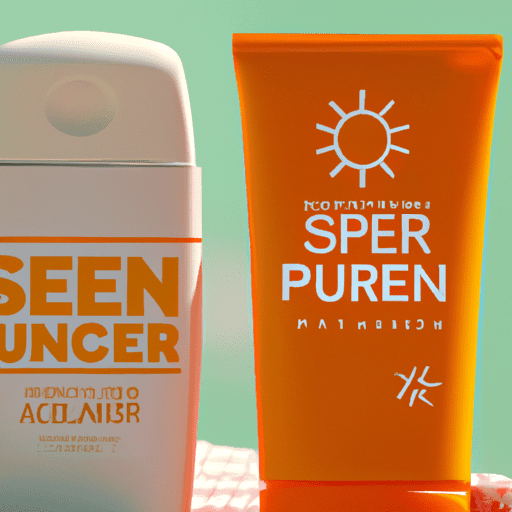Choosing the Ideal Sunscreen for a Safe Summer
-
Table of Contents
- Choosing the Ideal Sunscreen for a Safe Summer
- Key Takeaways
- Introduction: The Sun, Skin, and Sunscreen
- The Importance of Sunscreen
- Physical vs. Chemical Sunscreens
- Understanding SPF and Broad-Spectrum Protection
- Considering Skin Type and Lifestyle
- FAQ Section
- 1. How often should I reapply sunscreen?
- 2. Can I just use makeup with SPF?
- 3. Is sunscreen necessary on cloudy days?
- 4. Can I use last year’s sunscreen?
- 5. Is a higher SPF always better?
- Conclusion: Safeguarding Your Skin
- Further Analysis
Choosing the Ideal Sunscreen for a Safe Summer

[youtubomatic_search]
Key Takeaways
- Understanding the importance of sunscreen in protecting against harmful UV rays.
- Recognizing the difference between physical and chemical sunscreens.
- Identifying the significance of SPF and broad-spectrum protection.
- Considering skin type and lifestyle when choosing a sunscreen.
- Importance of reapplying sunscreen and using it alongside other sun protection measures.
Introduction: The Sun, Skin, and Sunscreen
As summer approaches, the importance of sun protection becomes increasingly paramount. Sunscreen plays a crucial role in shielding our skin from the harmful effects of the sun’s ultraviolet (UV) rays. However, with a plethora of options available on the market, choosing the right sunscreen can be a daunting task. This article aims to guide you through the process of selecting the ideal sunscreen for a safe and enjoyable summer.
The Importance of Sunscreen
According to the Skin Cancer Foundation, one in five Americans will develop skin cancer by the age of 70, and more people are diagnosed with skin cancer each year in the U.S. than all other cancers combined. The primary cause of skin cancer is exposure to UV radiation from the sun and tanning beds. Sunscreen, when used correctly, can significantly reduce the risk of skin cancer and prevent premature skin aging.
Physical vs. Chemical Sunscreens
There are two main types of sunscreens: physical (or mineral) and chemical. Physical sunscreens, containing active ingredients like zinc oxide and titanium dioxide, work by sitting on top of the skin to deflect and scatter damaging UV rays away from the skin. They are less likely to cause skin irritation, making them suitable for sensitive skin.
Chemical sunscreens, on the other hand, absorb UV rays before they can damage your skin. They often feel lighter and blend more easily into the skin compared to physical sunscreens. However, some chemical filters have been associated with skin irritation and potential hormone disruption.
Understanding SPF and Broad-Spectrum Protection
SPF, or Sun Protection Factor, measures how well a sunscreen protects against UVB rays, the type of radiation that causes sunburn and contributes to skin cancer. Dermatologists recommend using a sunscreen with an SPF of at least 30, which blocks 97% of UVB rays.
Broad-spectrum protection refers to the product’s ability to protect against both UVA and UVB rays. UVA rays penetrate the skin more deeply than UVB and are primarily responsible for premature skin aging and wrinkling. They also play a significant role in the development of skin cancer. Therefore, for comprehensive protection, always choose a sunscreen labeled as ‘broad-spectrum.’
Considering Skin Type and Lifestyle
Your skin type and lifestyle can also influence the type of sunscreen that’s best for you. For instance, if you have oily skin, you might prefer a lightweight, oil-free sunscreen. If you have dry skin, a moisturizing sunscreen could be a better choice. For outdoor activities, a water-resistant sunscreen is essential. And if you’re conscious about the environment, you might opt for a reef-safe sunscreen that doesn’t contain oxybenzone and octinoxate, two chemicals known to harm coral reefs.
FAQ Section
1. How often should I reapply sunscreen?
It’s recommended to reapply sunscreen every two hours, or immediately after swimming or sweating.
2. Can I just use makeup with SPF?
While makeup with SPF can provide some protection, it’s usually not enough on its own. It’s best to use it in conjunction with a broad-spectrum sunscreen.
3. Is sunscreen necessary on cloudy days?
Yes, up to 80% of UV rays can penetrate through clouds, so it’s important to wear sunscreen even on cloudy days.
4. Can I use last year’s sunscreen?
Only if it hasn’t reached its expiration date and has been stored in a cool place. Heat can degrade sunscreen and make it less effective.
5. Is a higher SPF always better?
Not necessarily. While higher SPF provides more protection, the difference becomes negligible past SPF 50. No sunscreen can block 100% of UV rays.
Conclusion: Safeguarding Your Skin
Choosing the right sunscreen is a crucial step towards a safe summer. By understanding the difference between physical and chemical sunscreens, recognizing the significance of SPF and broad-spectrum protection, and considering your skin type and lifestyle, you can select a product that best suits your needs. Remember, sunscreen should be used in conjunction with other sun protection measures, such as wearing protective clothing and seeking shade, for optimal protection against harmful UV rays.
[youtubomatic_search]
Further Analysis
While this article provides a comprehensive guide to choosing the ideal sunscreen, it’s always a good idea to consult with a dermatologist or skincare professional for personalized advice. Remember, the best sunscreen is the one you’ll use consistently. So, find a product that you enjoy using, and make it a part of your daily routine. Here’s to a safe and sunburn-free summer!


